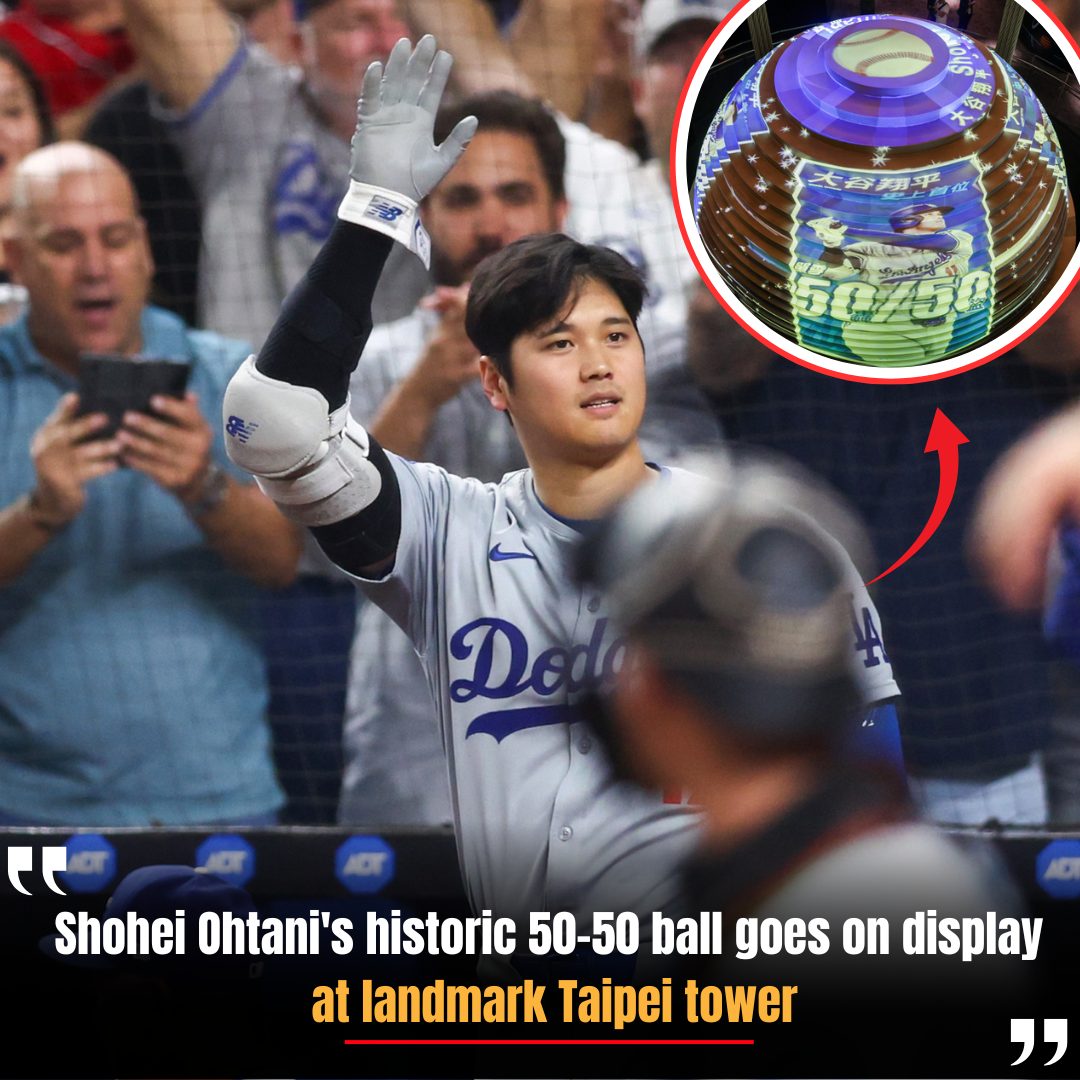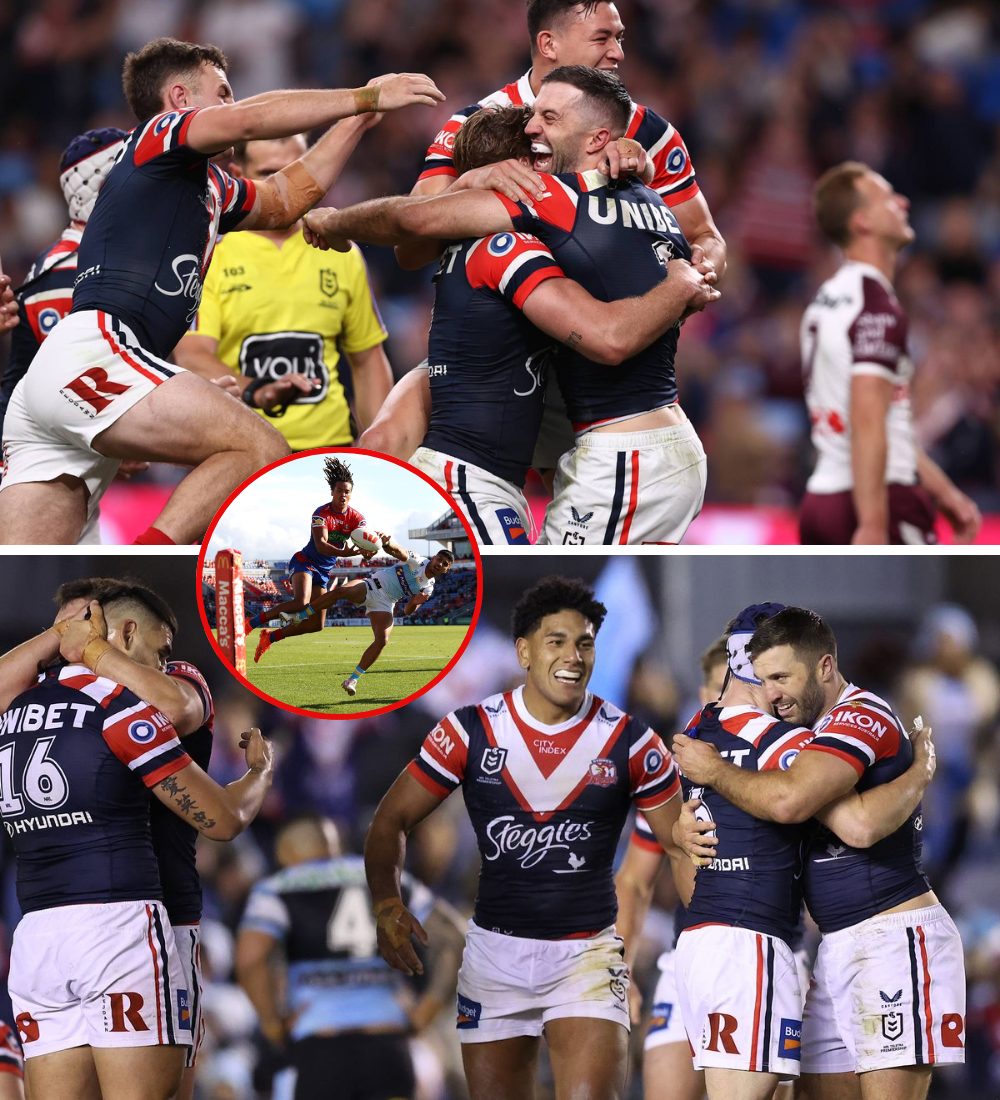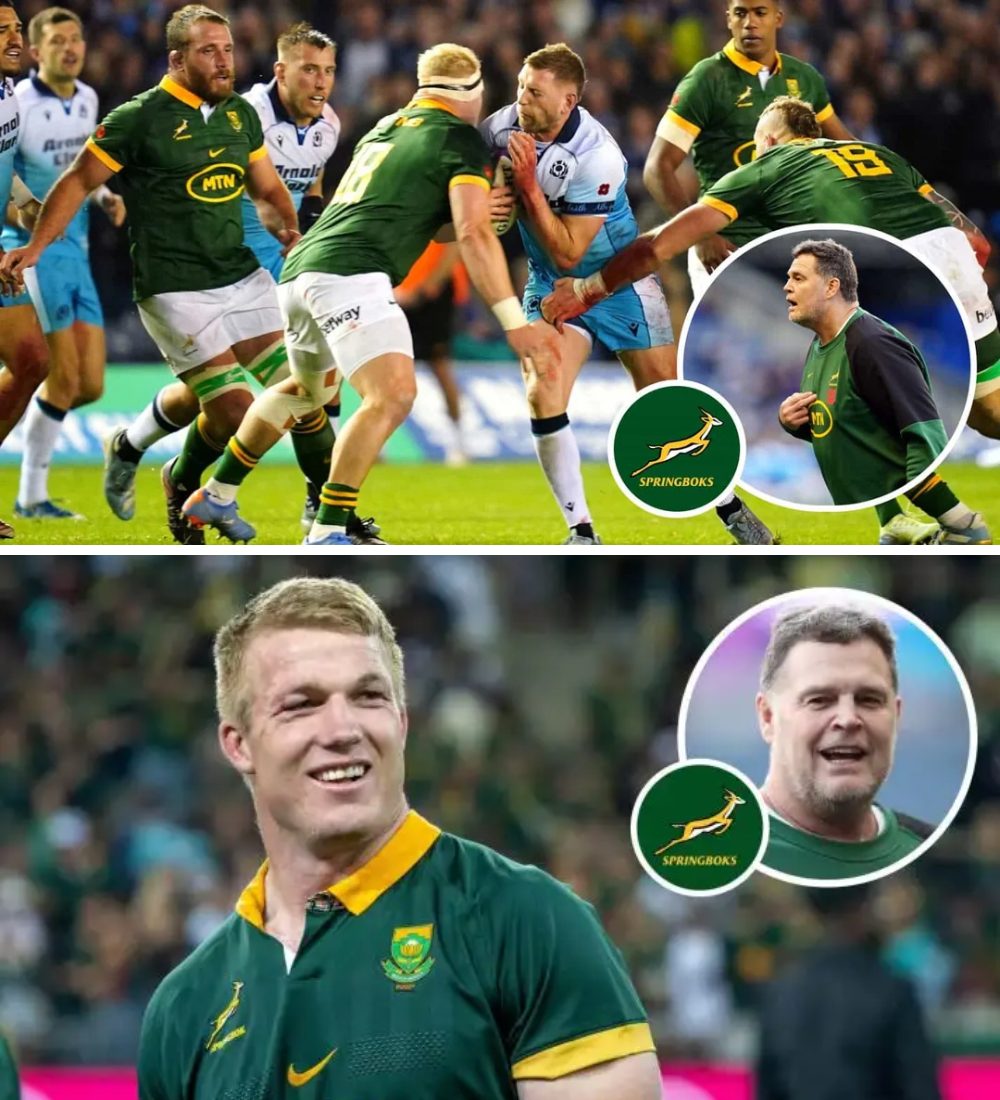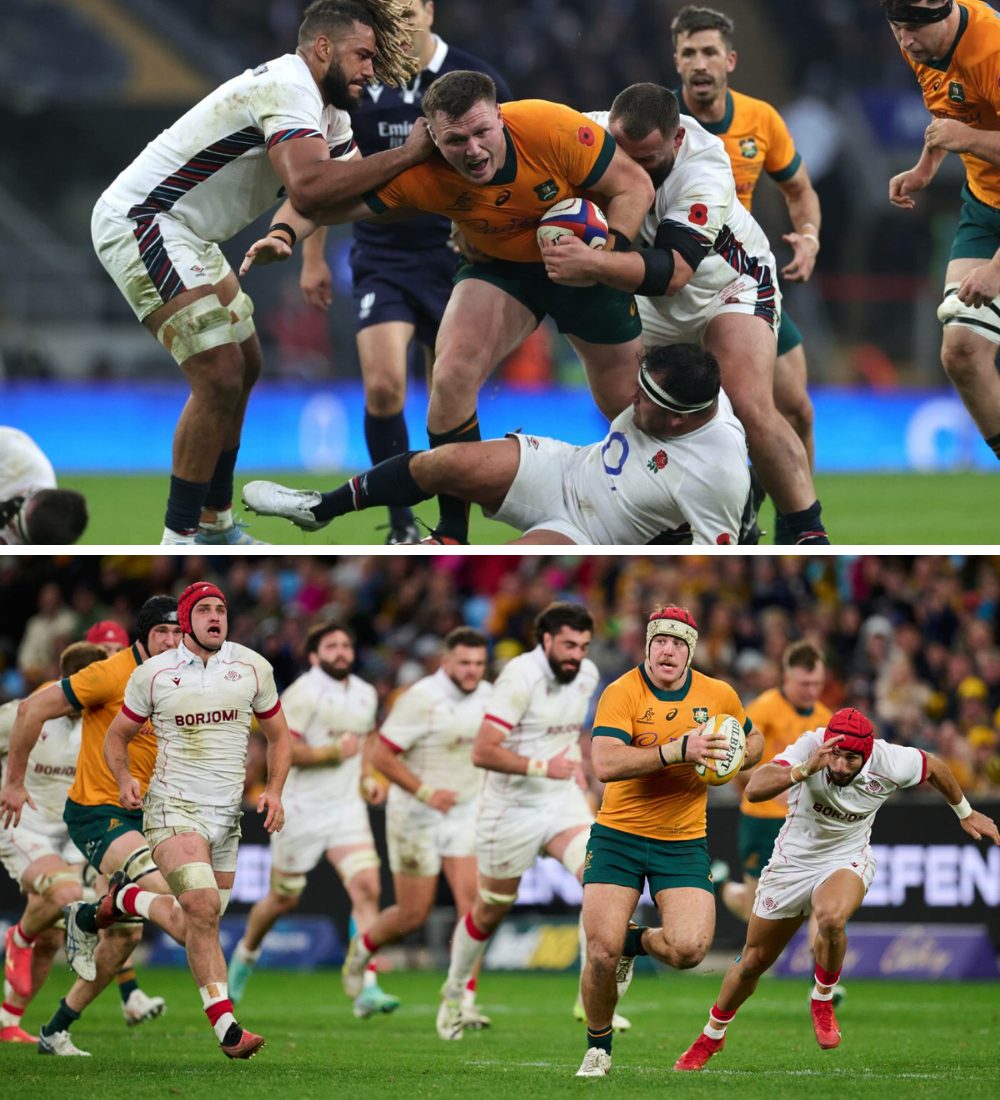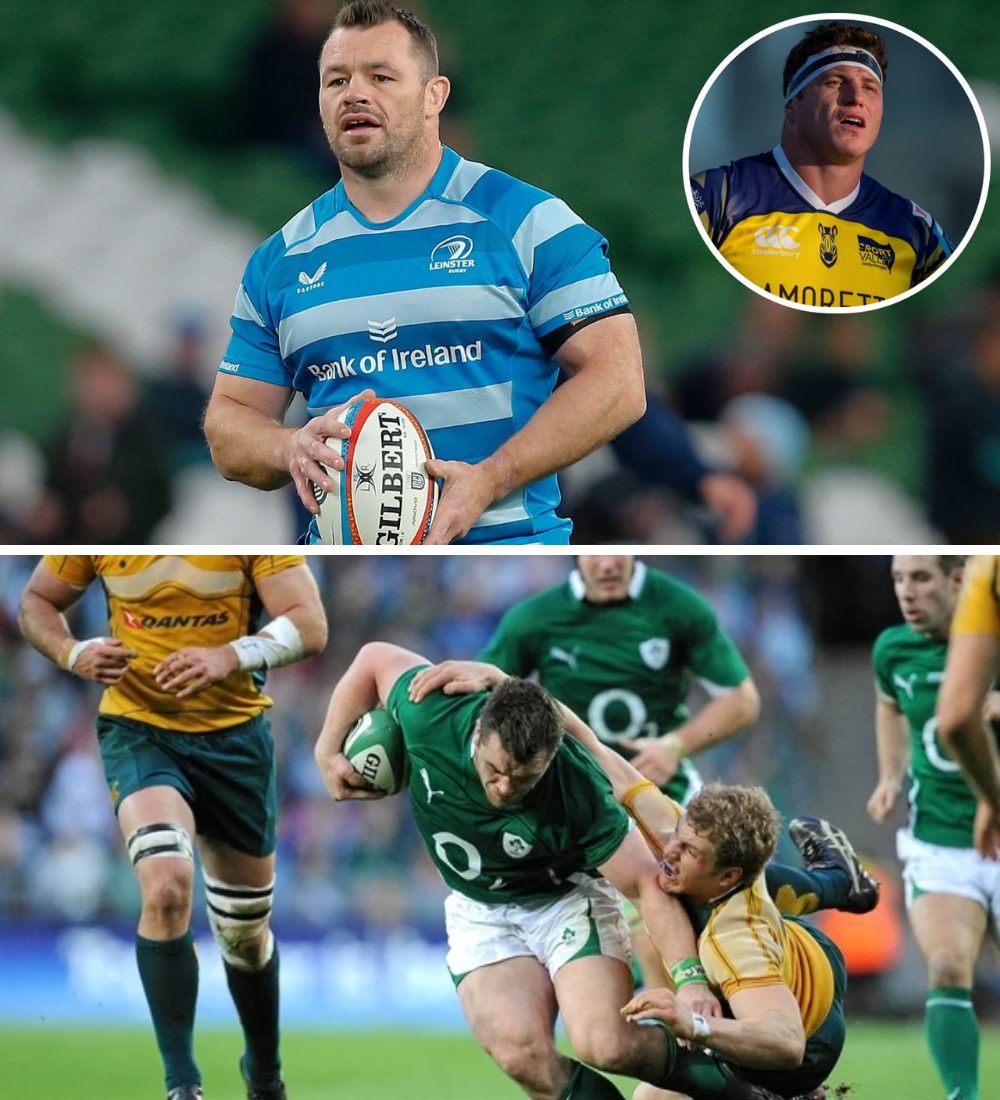As a rule, there’s usually something a bit off about writers quoting themselves, but in the excitement of the Wallabies’ brilliant 42-37 win over England, hopefully I can be allowed a little leeway.
This from last Monday: “While Australia won’t be helped by the six-week gap since their last match, don’t be surprised if Joe Schmidt has his side in the right shape to give things a real shake.”
And what about this from the 29th September?
“In a losing Sydney Roosters side on Friday night (Joseph-Aukuso) Suaalii once again showed he has the football smarts, the hands, the size and the athletic capability to deliver at the elite level for the Wallabies; particularly at centre.
“Yes, he costs too much money; yes, the mini code war was unnecessary and demeaning, but… just get the kid in there already and, if it isn’t Len Ikitau shifting in one, find a 12 who, alongside Suaalii, will potentially form a long-term, world-class midfield.”
Indeed, it was the excellent Ikitau who got Marcus Smith to bite in on Australia’s left edge, and whose nerveless flick pass sent Max Jorgensen flying in for the winning try, to seal what must be the best Wallabies Test win since Kurtley Beale belted over a last-minute penalty goal to knock off South Africa, in Bloemfontein in 2010.

Len Ikitau passes. (Photo by Julian Finney/Getty Images)
Interestingly, Australia’s captain that day was Rocky Elsom. Let’s hope that he was able to come out of hiding for a couple of hours to share in the glory of this grand victory, or at least have regular updates fed to him under the floorboards.
I digress. Despite England’s strong start, the Wallabies continued development and improvement under Joe Schmidt was immediately apparent in how much better organised they looked, in both attack and defence.
Granted, it took until the second quarter before the Wallabies got any sustained possession in the attacking half, but they handled England’s rushing defence admirably, and took the sting out of the hosts so much so that by the 52nd minute, the early 15-3 deficit had been turned into a 28-18 lead.
Three times the Wallabies had to come from behind. That doesn’t happen unless players are instilled with self-belief, a sound template, and the licence to play – none better illustrated by Tom Wright’s willingness to step and run out of his own 22, when offered the space to do so.
Carrying for shorter distances, but gaining hard yards in the tough channels, Angus Bell, Nick Frost and Rob Valetini all were major contributors to the win; Bell my stand-out for man-of-the-match regardless of Suaalii sending the hype-ometer into conniptions.
It wasn’t all easy; the quality of Smith’s attacking kicking game was responsible for three tries and, having regained the lead in the 76th minute when Andrew Kellaway ran away from a wall of England chasers, Schmidt would have been disappointed at how his players seemed to freeze and meekly concede the kick-off.
But offered one final chance to win it, win it the Wallabies did. Not by milking a contentious penalty or fluking a long-distance drop goal, but by encouraging England to narrow their defence against the pick and go, before having the bravery and cool heads to execute on the outside.

(Photo by Andrew Kearns – CameraSport via Getty Images)
Irrespective of the finish and the outsider nature of the result, let’s not forget that this was a cracking game of rugby. Chandler Cunningham-South’s opening try featured multiple highly-s𝓀𝒾𝓁𝓁ed transfers from England’s forwards. In one long passage of play in the first half, there were continuous sweeps of thrust and counter thrust, back and forth.
Yes, the game tightened up in the final quarter, but that only added to the theatre, with both sides trying to figure out the best pathway to victory. In the end, England will rue calling the backline move that broke down and led to Kellaway’s go-ahead try, but it’s easy to be wise after the event – five minutes is a long time in which to close out a game, when leading by less than a kick.
As for Suaalii, a fine contributor to the match who already has the No.13 jersey sewn up for as long as Australian rugby can afford it, it became apparent afterwards that one reason for all of the over-the-top hype about him was because most rugby fans and many in the media hadn’t actually seen him play before.
Without a reference point, it was inevitable that folk, hitherto in the dark, would mark the 21-year-old disproportionately down or up, for his negative or positive contributions.
The other thing that Suaalii’s arrival has done is deliver hope to Australia’s fanbase which, only a year ago, was plumbing the depths of World Cup despair in Lyon. All of a sudden, with Bell fit and firing, with Valetini and Fraser McReight consistently outstanding, it feels like the Wallabies have a handful of genuine, world-class players around which to continue to build a genuinely competitive side.
While we’re talking over-the-top hype, two losers on the day were recently anointed GOAT Antoine Dupont, and New Zealand’s Wallace Sititi who, having recently stolen Dupont’s crown as the undisputed greatest player of all time, could only sit and watch as Suaalii rudely bumped them both down a notch.

(Photo by David Rogers/Getty Images)
Others who might want to re-assess their takes include David Campese, whose distaste for Schmidt because of his supposed inability to understand Australian rugby, looks sillier by the day.
At the head of the humble pie table though, sits England’s Ben Youngs, whose insistence that the Lions abandon next year’s Australian tour and instead head to South Africa for some decent competition, now looks embarrassingly juvenile. Stand by for a light-hearted ‘I was only joking’ clarification – even though he wasn’t.
Ireland is typically a side that feeds off positive energy generated by its adoring Aviva Stadium crowd, which in turn feeds off the high-paced, high-energy exploits of its team.
Thanks to the All Blacks dominating field position and Ireland’s failure to hold on to the ball and stay on the right side of referee Nic Berry, things were unusually quiet in Dublin; the final 23-13 score line, if anything, flattering the Irish.
The celebrated green line speed was certainly there; no side in international rugby fills defensive space and resets as fast as Ireland does. But aside from a couple of excellent individual efforts from Josh Van der Flier and Jamison Gibson-Park, the rest of it smacked of ‘first-up blues’; Ireland’s impressive 19-match winning home streak coming to a limp end.
Of course, New Zealand had a big say in all of that, this the kind of win that fans probably didn’t think Scott Robertson’s side had in them.
Aside from one poor throw, the All Blacks’ set piece was rock solid, kick-off receipt outstanding, and once they fell into step with the pace of the game, their attacking cleanout was consistently efficient – which it needed to be given how keen Ireland was to test them at the tackle and breakdown.
The messiness that accompanied the early sorting out period didn’t help halfback Cortez Ratima, but that’s what differentiates Test rugby from Super Rugby – even if your pack isn’t giving you the protection it should, a halfback can’t pick the ball up and then decide where to look for his receiver. There just isn’t the time.
Ratima will be better for the experience, and for coming back next year having developed a bit more robustness. But even allowing for a couple of high-ish passes from replacement Cam Roigard, the gulf between the two was obvious; Roigard commanding the space around the back of the breakdown with outward confidence and superior physical presence.
Fans have been waiting patiently for Asafo Aumua to deliver on his initial promise, and with Robertson singling him out for praise afterwards, this fortnight might well be the making of his career. Everyone loves a multi-dimensional hooker, and as long as he continues to improve his throwing, along with some impressive young propping depth, the All Blacks are building a strong foundation.
The career of the polarising Damian McKenzie also took a large stride forward. One hairy moment at the back with Will Jordan aside, his was a mature, well-balanced display, matched only by his ability to reel off nearly the whole book of rugby’s well-worn cliches in rapid succession, in a post-match interview.
This was also flanker Sititi’s best match in black – which is saying something given how impressive the start to his career has been. Faced with a different kind of challenge – closely marked, his time and space closed down – he remained accurate, shouldered some hard carries, and then topped things off with a nonchalant half-volley pick up and pass in the lead-up to Jordan’s try.
The post-match was notable for Rieko Ioane continuing to troll Johnny Sexton, taking to social media to invite Sexton to add a photo of Ioane leading the All Blacks’ haka to his recently published book.
As far as sports photographs go, it’s evocative and beautifully framed. But having basked in the glory of his “get back ten metres” sledge to Sexton at the end of last year’s World Cup quarter-final, one wonders what Ioane has left to gain by going on with things.
There’s nothing wrong with a bit of banter and byplay to help promote interest and edge in the game. But in this case, it feels like things are dangerously close to tipping over into unhealthy areas.
For one, it’s making James Kerr’s book ‘Legacy’, a management manual rooted in the humility of the All Blacks, look more dated by the minute. And there isn’t a player in the history of rugby – with the exception of Sititi, and now Suaalii – who hasn’t crowed like a rooster one day, then found themselves to be a feather duster the next.
No matter, Irish fans took to Ioane’s bait like mollycoddled Gen Zers unable to come to terms with an orange-haired garbage truck driver reclaiming the US presidency, ‘burning’ Ioane with lame zingers that could be broadly categorised into Ioane’s leading of the haka being his only contribution to the match.
That was well wide of the mark; Ioane was strong with the ball and sure in defence, on a night when space and time in the midfield was at a premium.

Rieko Ioane (Photo by Dan Mullan – RFU/The RFU Collection via Getty Images)
And so the All Blacks find themselves two from two, with France awaiting them this weekend. Nobody is suggesting Robertson’s side is the finished product, but aside from winning, the thing fans always want to see is their side improving.
There can be no doubt that this All Blacks team finally has the look and feel of a side that knows where it wants to go. And, most importantly, is developing the engine room to take them there.
Not sure where it wants to go is rugby’s new emphasis on eliminating obstruction for kick chasers. There’s no doubt this initiative is well-intended; defenders were taking too many liberties blocking out chasers whilst making it appear that they were the innocent victims being run into.
As always with these things, there is risk of unintended consequences. Advantaging the chaser will only encourage more halfbacks to pump the ball high from the base of the ruck; a tactic that would be high on the list of frustrations of fans all around the world. And watch for the inevitable increase in staging incidences from chasing players whose sides desperately need a penalty.
Certainly, deliberate obstruction as evidenced by Lukhan Salakaia-Loto at Twickenham, must be dealt with. But the idea that defenders should roll out the red carpet and step aside feels un-rugby like.
Finally, another quick reminder that my book ‘A Year in the Life and Death of the Melbourne Rebels’ is now available for order in paperback and e-book format from all major online bookstores, including The Nile, Amazon, Booktopia, Kobo, Waterstones and others.
I’m happy to report that it includes at least one mention of Joseph Suaalii, which I think makes it even more terrific value than it already was. Don’t forget that if you do read it and happen to enjoy it, please leave a review or rating on the supplier’s site. Cheers.
